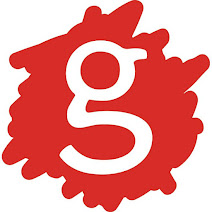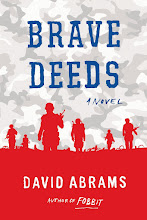Anthologies of western literature have been cropping up in the last few decades at the rate of McMansions sprouting in the foothills of Rocky Mountain ranges. The rise in appreciation for western lit is, perhaps, far less troubling for some than the influx of the wealthy "out-of-staters." We can at least tolerate a groaning shelf of regional books. For starters, there's the grandaddy of them all: The Last Best Place, the 1988 collection of Montana writing edited by William Kittredge and Annick Smith. It's a door-stopper volume of Big Sky writing that is the touchstone for any purple-mountains-majesty anthology which followed--a long list which includes Circle of Women: An Anthology of Contemporary Western Women Writers, The Best of the West, The Literary West, and New Writers of the Purple Sage.
Now comes West of 98: Living and Writing the New American West, edited by Lynn Stegner and Russell Rowland, a 380-page trip through the New West which poses the question "What does it mean to be a westerner?" and receives a chorus of answers.
My review of West of 98 appears in The Billings Gazette and opens like this:
As with all reviews, I was constrained by the limits of column inches (and readers' attention spans). So, that meant I wasn't able to include some of my favorite passages from West of 98. Here are two--the first from Rowland's essay "Chasing the Lamb" which goes like this:
And this from "Celilo Falls" by Craig Lesley in which the Oregon writer remembers the time he watched a dam kill a waterfall revered by Native Americans:
Now comes West of 98: Living and Writing the New American West, edited by Lynn Stegner and Russell Rowland, a 380-page trip through the New West which poses the question "What does it mean to be a westerner?" and receives a chorus of answers.
My review of West of 98 appears in The Billings Gazette and opens like this:
What is the West? Where does it begin and end? How does one even get there?Click here to read the rest of the review.
According to West of 98’s editors and contributors, the answer to all three questions is: it depends. The West is less terra firma than it is terra incognita, a landscape of the imagination that is still being mapped by politicians and poets.
Lynn Stegner, who co-edited the anthology with Russell Rowland, writes in the Introduction that the original goal was to find “a kind of Greek chorus that might define, remark upon, and otherwise characterize the West as each of us grew to know it, and, equally important, the West that is still becoming. A declaration not of our independence this time, but of our interdependence.”
What Stegner and Rowland got were 67 writers—most of them all-stars in contemporary west-of-the-Mississippi literature—each with a distinct and often contradictory perspective on what it means to live “west of the 98th meridian.” Taking a wide-angle view of West of 98, we find a crazy-quilt definition of the western landscape and its people; some of the individual essays are exquisite, a few are flat as a Nebraska wheat field, but all form a pattern of what eventually looks like a singular landscape which generations have both tamed and succumbed to in the quest for more open spaces. The West is, as David Mas Masumoto claims, “dirt worth fighting for.”
In this thick, rich volume, we’re treated to essays and poems by, among others, Rick Bass, Larry McMurtry, Judy Blunt, Walter Kirn, and Gretel Ehrlich—all of them trying to pin down the nature of a place that is equally defined by the Marlboro Man and the neon cowboy of Las Vegas. Some of the contributors merely define their own postage-stamp-sized corner of the West, others conclude by admitting they’re baffled by the physical and imaginative boundaries of the region. The true West is such an enigma to Ron Hansen, for instance, that his entire essay “Why the West?” is nothing but a series of questions (“Why do movie characters on the run almost always head west?” etc.).
The editors have smartly arranged the anthology according to geography, moving from east to west, so we begin with Louise Erdrich in the “big grass” of North Dakota and spill out of the book with Paige Stegner in coastal California.
As with all reviews, I was constrained by the limits of column inches (and readers' attention spans). So, that meant I wasn't able to include some of my favorite passages from West of 98. Here are two--the first from Rowland's essay "Chasing the Lamb" which goes like this:
What I wonder finally is whether the last frontier of the West might be the internal journey, the search for how each of us fits in this mythical place. From as far back as I can remember, there was an underlying feeling that growing up here meant that we shouldn't expect to be as sophisticated as those exotic folks to the east or even the ones on our own coast....The West has long suffered from an inferiority complex. Westerners have been reminded in ways that are often subtle, but always clear, that we are interesting in some of the same ways that cavemen or headhunters are interesting. We are reminders of a past that was brutal and lawless. And we are often expected to perpetuate these myths, making occasional appearances in the press for our modern day outlaws, our mountain men or our Unabomber, and producing art that reflects the same old stereotypes. We constantly struggle with the possibility that, if we step out of these roles, we might not be taken seriously. And yet we're not taken seriously when we stick with the roles, either. Even those who have achieved success in their artistry are considered regional and are often dismissed by the elite.
And this from "Celilo Falls" by Craig Lesley in which the Oregon writer remembers the time he watched a dam kill a waterfall revered by Native Americans:
My grandfather took me out to Celilo the day they closed the dam's floodgates. For a few hours it didn't seem to make much difference. The whitewater came rushing down the chutes, roaring and crashing over the Falls. But down below I could see the water hit the dam and start rolling back against itself, like wild horses driven into a blind canyon cutting back on their trail. By the middle of the afternoon, I could tell the water was rising. A large pool stretched across the river, but the Falls kept on roaring as if nothing could stop them.
Finally, the lake reached the base of the first Falls, so the engineers in their hard hats and the politicians in their ties lined up for pictures, the last pictures of the Falls. Then I heard a high wail. It was even louder than the roar of the Falls. All the old Celilos had turned their backs to the rising water and were lined up facing the canyon wall. Their arms were crossed and they were chanting the death chant.
The lake rose against the Falls as the water kept pouring over them, but the more it crashed into the lake, the higher it rose, choking them back. I closed my eyes, praying it would stop. My grandfather put his hand on my shoulder. Then I opened my eyes and stared. One after another, the Falls drowned themselves, until the roaring stopped, and I couldn't hear anything but the sucking of the dark, eddying lake as it grew larger and larger, filling up the canyon.














No comments:
Post a Comment